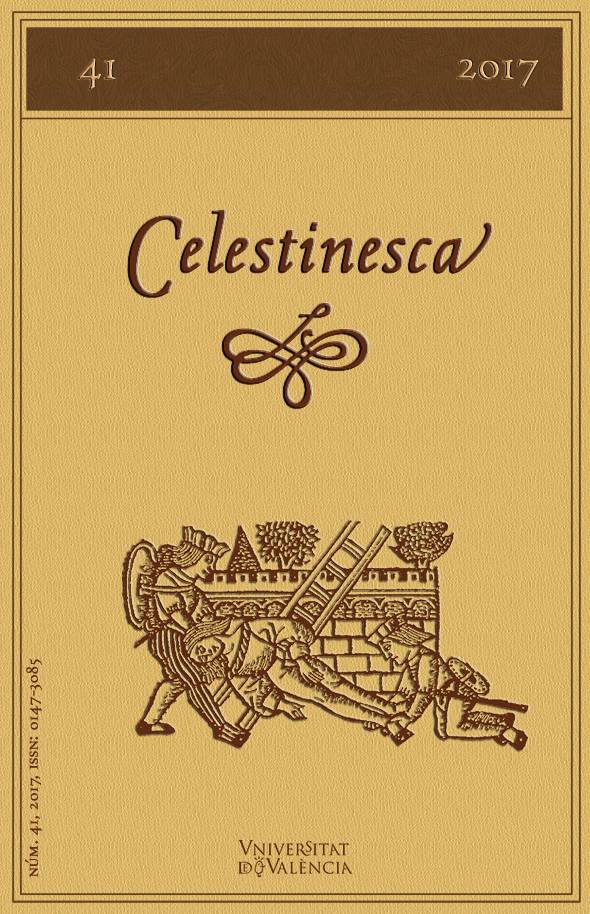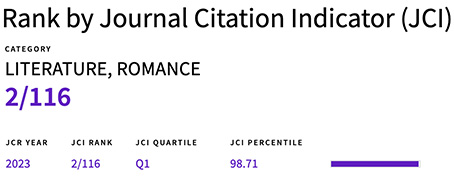Three picaresque-celestinesque antiheroines: the radically subjugated female bodies in La hija de Celestina
DOI:
https://doi.org/10.7203/Celestinesca.41.20205Keywords:
Subjectivity, Intersectionality, Golden Age, Capitalism, Patriarchy, Misogyny, Foucauldian panopticon, Radically subjugated female bodies Abstract
Abstract
This article critically analyses the discourse of subjectivity and the critical theory of intersectionality through a detailed analysis of the three picaresque-celestinesque anti-heroines: Elena, Zara/María, and Méndez, portrayed in the mediavalizing novel La hija de Celestina (1612) by Alonso Jerónimo de Salas Barbadillo. It primarily analyses the protagonist Elena, who emerges as a violated and subjugated self as well as a critically racialized, gendered, and classed product of intersectionality, and thus she personifies subjectivity, radically. Elena is also seen as the devilishly beautiful product of the exploitative capitalism that emerges as a monstrous, frankensteinian «Self» when she intends to invert the stereotypical societal pyramid of masculine power and control. There is a third angle to the subjugation of women in the novel, where, due to immense misogyny and fear predominant during the Golden Age epoch, the patriarchal and authoritarian State watches the female bodies constantly in a Foucauldian panoptical style, discipline and punish them grossly, especially Elena: the femme fatal, and subsequently converts them to docile bodies.
 Downloads
Downloads
Downloads
Published
How to Cite
-
Abstract432
-
PDF (Español)292
Issue
Section
License
![]() Celestinesca is committed to the dissemination of knowledge, that is why access to its contents is free and is ruled by a Creative Commons Attribution-NonCommercial-NoDerivatives 4.0 license.
Celestinesca is committed to the dissemination of knowledge, that is why access to its contents is free and is ruled by a Creative Commons Attribution-NonCommercial-NoDerivatives 4.0 license.
Authors retain the rights to their works. Therefore, they can disseminate them and deposit them in the repository, institutional or not, that they wish. However, they are kindly requested to do so by providing the full bibliographic reference and the corresponding DOI.
Celestinesca does not charge authors for submitting, processing, reviewing or publishing their articles.





